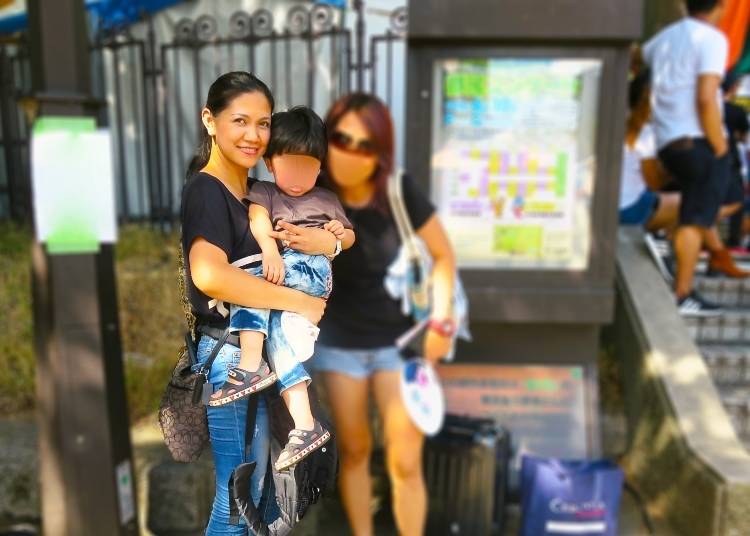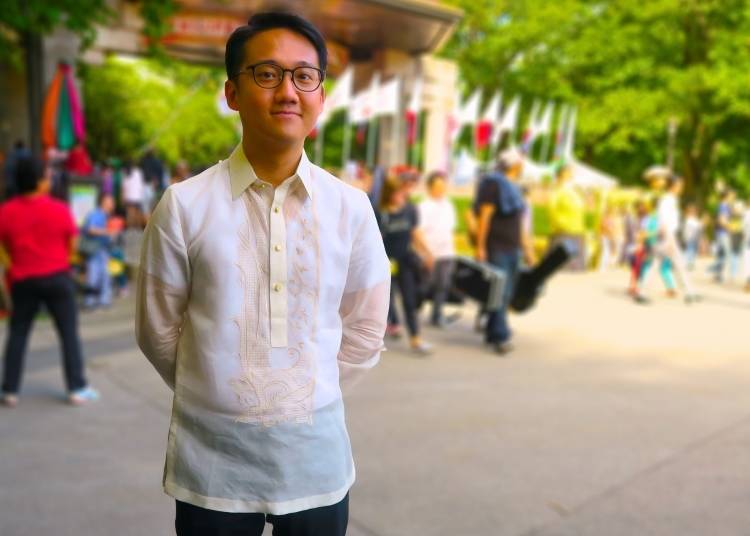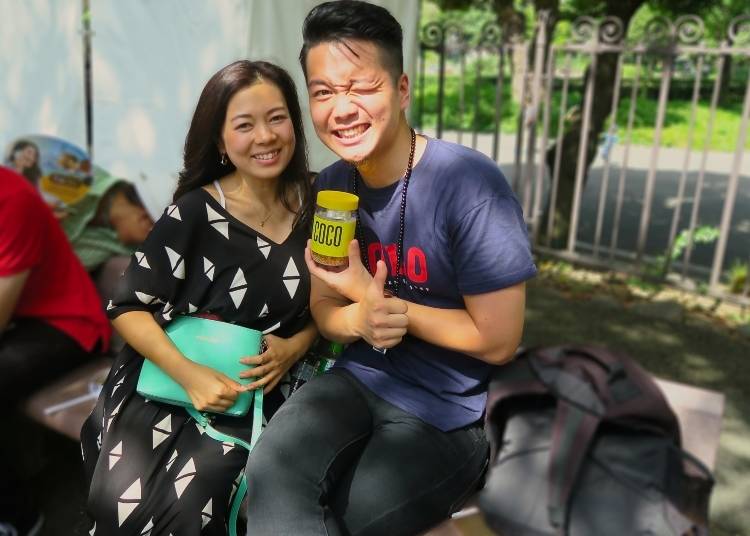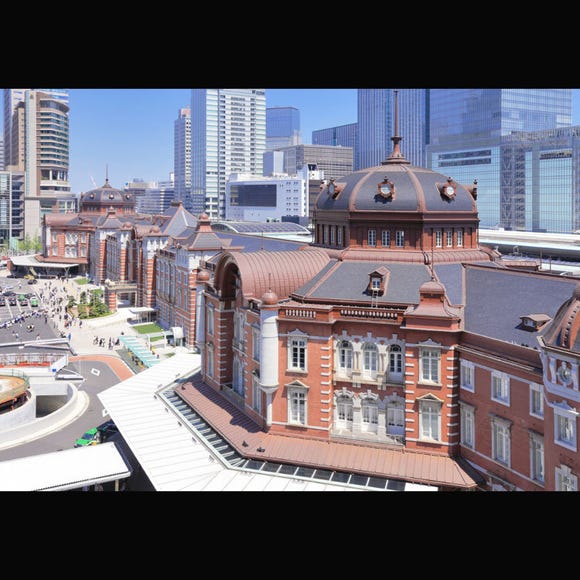
Life In Tokyo: Work & Culture Shocks For Filipinos In Japan
- Written by: Lucio Maurizi
The idea of visiting Japan is exciting for many people – but living in the land of the rising sun is a different question entirely! Are the cultural standards going to be very different? What should you be ready for in social settings and in the workplace? These are important questions, but hard to have an answer to - unless you have already spent some time in Japan. We asked 6 Filipinos about their experiences in Japan in order to get a beat on how the lifestyle is different from back home.
You won’t need to travel far, in order to get your answers: they are right here!
The Filipino population in Japan is on the rise, with government data showing over 251,900 Filipino residents as of June 2017. Most seem to be very happy and adjusted to life in this country, but this doesn’t mean that others who are interested in coming here don’t have those jitters that we only get right before making a big decision!
To reach the heart of the Filipino community in Japan, no event is better than the yearly Philippine Festival in Tokyo (in Hibiya Park). Filipinos from all over the country gather to enjoy, alongside Japanese and visitors from the rest of the world, great food, a fun and lively atmosphere, shows, live music, and much more.
We talked to a lot of people at the Philippine Festival and asked about their own experience in Japan and their impressions, struggles, and excitement when they first arrived here. Did they experience culture shock? If so, in which way? How did they overcome it and what recommendations do they have for those of you who may be interested in coming to Japan? Here people shared 6 great tips on adjusting to life here.
1. Learn a bit about Japanese culture before your visit

Gina H. has been living in Japan for 24 years. She is a dancer and entertainer. Lively and happy to help, this is what she had to say about life in Japan, cultural differences, and how to prepare for it all.
L: When you came here, was there something that shocked you in particular about the everyday life, or the culture?
G: “No No. Japan is very... sumiyasui (easy to live in, welcoming). But the most difficult thing [to overcome] is the language. Before you come here, you should especially focus on learning the language. Also it’s very difficult to come here because of things like money and sponsor [work]. I’m here in Japan because I’m a dancer entertainer. Then I met my husband. I have one daughter and one boy. My oldest child is 25 years old now and she has two children of her own.”
L: Knowing the culture is also important, you think?
G: “Un (yup)! I want people to know about Japan. Japan is a very nice country, clean. People are nice. I’ve been to Canada, Australia… but Japan is the easiest to live in.”
Gina has adapted well to life in Japan, probably because she followed her own advice: she practiced the language and learned about the culture of the country. Japan can, at times, be a little daunting for those who don’t know much about its standards and uniqueness.
We wholeheartedly agree with Gina: a little research about the lifestyle in Japan can go a long way towards making your stay in the country (however short or long) much easier and more enjoyable.
2. Connect with community

Grace M. has been living in Japan for 14 years. She works for an insurance company. She is part of the group that for two consecutive years has sung the Philippine national anthem at the Philippine Festival in Tokyo.
Grace lives in Saitama, a prefecture just north of Tokyo. While talking about the beginning of her life in Japan, she said that at first it was a bit tough.
“It was kinda sad because I was always working, working. I was homesick because my daughter was in the Philippines and I was here working every day. The working culture here in Japan...It’s more time here [compared to the Philippines]. There’s a lot of overtime. At the company where I first started working, I used to work from 9AM to 11PM.”
Many expats would note that community plays a vital part as a social support when living abroad, a point echoed by Grace. “At first I didn’t have many Filipino friends, but after 8 years I met this Filipino community in Kyose, with whom, for two consecutive years I sang the Philippine national anthem at the festival. We were very proud. Now I enjoy my time. Here at the festival everybody has fun, you can meet a lot of people, and eat a lot of Filipino food.”
As a foreigner in Japan, it’s easy to relate to what Grace was talking about. For many people coming from different countries, adapting to the work etiquette and hours in Japan can be quite hard. The workplace is not necessarily harsh or unpleasant per se, but the expectations and the workload are often different from those of similar jobs abroad.
3. Pick up the language and get into the local mindset

Cristy R. has been working in a bakery in Tokyo for 1 year and a half and plans to stay here for 3 years. She told us that she loves living and working in Japan. “When I came here, I was really shocked because everyone is very kind! It’s different from the Philippines. I think people are more kind here, especially customer service.”
L: Did you have any trouble adjusting to life here?
“About adjusting here... In the Philippines it wasn’t so hard to speak, also in English like this. What is very hard for me is the [Japanese] language, but little by little I’m getting better! Also working here can be really hard because of the long hours. In the Philippines it’s just 8-9 hours, but here it’s more.
For me, the most important thing to prepare for when coming here is [things] about work. Learning about work culture is important because most people from the Philippines want to work here in Japan, and they want to save money.”
Cristy hit the nail on the head with her answer. In fact many people talk about the problem that may derive from long hours at work and lack of language, but something else is also important: the differences between work culture in Japan and that in the Philippines. How to behave with your colleagues, superiors, and customers is an important factor in Japanese work places.
Of course the same can be said of any other country, but at the same time, learning about Japan-specific rules and behavior in the work place can truly help when it comes to adjusting quickly to a new professional environment.
4. Understanding Japanese gestures and cues goes a long way

Iann H. who has been in Japan for almost 2 years, and who works for the Philippines Embassy in the Labor division, also feels similarly to Christie. Iann loves living in Japan. In fact he goes so far as to say: “I would say it’s the best country in the world. In my opinion it is, yeah.”
L: Why is that?
“In one word: convenience – he continued. Everything is one push of a button away. That’s how I would put it.”
Iann, though, also had to overcome some initial obstacles. Like many of the other people we talked to mentioned, he also confirmed that: “The work culture here [Japan] is very strict and as you all know, Japanese workers are very hard working. So I guess people who want to work here, should first learn how to adapt to that workstyle. [People should] maybe study more about Japanese working culture before coming here; do their research and try to meet new Japanese friends as well. For me it was also challenging to learn social cues. When to bow, when to say domo... But it took me at most a year to pick it up.”
Iann seems to agree with many other people when it comes to initially challenging working culture and customs, but he also touches upon another topic that many Filipinos and foreigners in general alike have a hard time with, at first. Japanese social culture is constellated with gestures, words, and expressions that are meant to be used with people in certain settings. They also change depending on one’s relation with other people, as well as the situation itself.
Mastering the social cues, as well as the language can take years, but learning the basic standards won’t be excessively hard.
One way to do it quickly? Follow Iann’s advice and meet and make as many Japanese friends as possible. You won’t even have to try and learn. You’ll just absorb the mannerism passively (not to mention, in most cases, Japanese people will be very happy to help you understand some aspects of their culture and mannerism).
5. Go with the flow and be flexible

Very good advice can also come from people who belong to both the Philippine and the Japanese cultures. Such is the case of Natsumi D. She was born and raised in Japan. Her mother is from the Philippines and Natsumi knows Philippine standards just as well as the Japanese ones. Natsumi and Ryota T. came to the Philippine festival from Yokohama. It was the first time at the event for them and they were having a blast!
According to Natsumi one of the hardest things for a Filipino to get used to when living in Japan is school. “Because school in the Philippines is for a short time so [compared to Japan] tarinai (not enough). You should study hard to learn the language, but if you come as a student, it’s good to get used to study harder in general. Not only Japanese [language], but English and Tagalog, as well as mathematics and science. My job before was teacher in a Japanese elementary school.”
L: Do you think that the behavior of people in Japan, and the culture is also different from the Philippines?
“Yes, but Filipinos are very easy going and adapt easily!”
Especially for younger people moving to Japan by themselves or with their family from the Philippines it could be hard to be immediately accustomed to the school system in Japan. Compared to many countries, Japan has much longer school hours. Students are required to study a lot in class and at home, and they also have to participate in many extracurricular activities, such as clubs, and group studying. Even the youngest among students also take care of the cleanliness of the classrooms and of all the areas of the school, adding extra work to their already large load.
Aiming at creating a very disciplined school experience, for foreign students transferring to a Japanese school, the school system can be disorienting and it can be hard to follow the pace and the rules. As always, though, researching ahead and preparing before moving, will make any challenge much more easily approachable. No reason to worry!
6. The culture might be different...But you’re going to love it!
Miku, a university student who lived in Japan for 15 years certainly could relate to what Natsumi mentioned and explained how for many young people it could be hard, at first, to fit in Japan.
“It was hard. I couldn’t speak any Japanese so I couldn’t understand what people were saying. People looked at me like I was weird. I didn’t like it because I felt like I was different, the only one who was not the same as the others around me.”
This is a very common feeling for many of the younger expats living Japan, but it’s also something that you shouldn’t be worried about. All the people with whom we talked found Japan to be very welcoming and Japanese people ready to connect and help.
Going from abroad to Japan – whether for work or study – can be as scary as it is exciting. You would have many questions and fears, but everyone we talked to loves it here! Of course there may be some issues at first, but this would be true for any big move.
Not only will it be easy to connect with people that share your culture, but also, you’ll find that Japan and its people are very happy to connect with you and are open to learning from each other! Culture shock (positive or negative) is always a thing, but it’s also temporary. The same things that shock you once you first arrive to Japan, may very well become the things that you come to appreciate and love the most after a few years (or even months).
Lucio Maurizi is an automotive expert specializing in Japan's car scene and auto-tourism. With an MA in East Asian History from La Sapienza Università di Roma, he's a multi-talented contributor to travel platforms like LIVE JAPAN, Japan Travel, and GPlus Media. His Instagram account (50k+ followers) offers insider views on Japan's automotive culture. Lucio also actively collaborates with professional drivers and influencers and organizes can't-miss car events in Tokyo.
- Area
*Prices and options mentioned are subject to change.
*Unless stated otherwise, all prices include tax.
Popular Tours & Activitiess
Recommended places for you
-

The Tokyo Station Marunouchi Building
Landmarks
Tokyo Station
-

Ameyoko Shopping Street
Old Towns (Shitamachi)
Ueno
-

Shinjuku Gyoen National Garden
Gardens
Shinjuku
-

Kappabashi Street
Old Towns (Shitamachi)
Asakusa
-

TOKYO SKYTREE®
Landmarks
Ryogoku / TOKYO SKYTREE(R)
-

Naritasan Shinshoji Temple
Temples
Narita
-

New Seibu L00 Series Launching in 2026! What to See Along the Tokyo-Area Golden Route
by: Guest Contributor
-

Don't Miss Out! The One Thing You Must Do Before Shopping at Mitsui Shopping Park LaLaport: Get Your Max 10% OFF Coupon Book
-

Black Friday 2025: These Are THE Japan Travel & Shopping Deals to Check Out
-

Get Ready to Catch 'Em All! First Ever Permanent Outdoor Pokémon Park Opening Near Tokyo!
-

[Extended Offer!](12% OFF KKday Coupon) Mt. Fuji Autumn Leaves, Powder Snow & More! 15 Best Tours to Experience Japan in Fall & Winter
-

2025 Autumn Colors Report: Kurobe Gorge Nearing Peak
by: Timothy Sullivan
Inspiration for Accommodations
-

Enjoy Mt. Fuji from the Comfort of Your Room! Recommended Ryokan with Mt. Fuji View
-

Stay Near the Cherry Blossoms! Hotels for Cherry Blossom Viewing in Tokyo
-

Family-Friendly Hotels with Free Shuttle to Disneyland: Convenient Access for a Magical Stay
-

Top Ranked Hakone Hotels with Mt. Fuji View: Enjoy Stunning Scenery from Your Private Space
-

Convenient Tokyo Hotels with Airport Shuttle: Ideal for Families and Heavy Luggage
-

Stunning Tokyo Tower View Hotels: Enjoy Spectacular Scenery from Your Private Space
-

Convenient Asakusa Hotels with Kitchens: Ideal for Extended Family Visits
-

Experience Luxury: Hakone's 10 Best Five-Star Accommodations
-

Enjoy Mt. Fuji Autumn Leaves! Top Hotels Near the Popular Autumn Leaves Corridor
-

Experience Hakone Fall Foliage from Your Room with Stunning Views
-

Nihonshu Bar Fuksuke – No Matter where you are from, this Japanese Sake Connoisseur has the Right Drink for You!
-

Urasando GARDEN (Tokyo): Omotesando's Hidden Cafe Gem with Irresistible Charm
-

5 Places in Tokyo to Get Your American Food Fix
-

10 Important Japanese Phrases to Know Before You Enter a Japanese Convenience Store!
by: Teni Wada
-

Essential Tokyo: The Complete Guide to Ikebukuro Station
-

16 Secrets About Mt. Fuji, the Symbol of Japan: Even Japanese People Don’t Know That?!
- #best ramen tokyo
- #what to buy in ameyoko
- #what to bring to japan
- #new years in tokyo
- #best izakaya shinjuku
- #things to do tokyo
- #japanese nail trends
- #what to do in odaiba
- #onsen tattoo friendly tokyo
- #daiso
- #best sushi ginza
- #japanese convenience store snacks
- #best yakiniku shibuya
- #japanese fashion culture
- #best japanese soft drinks














